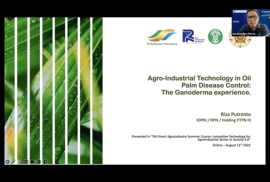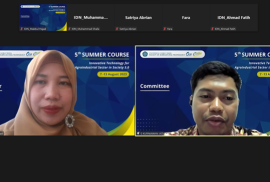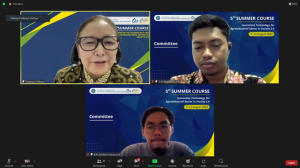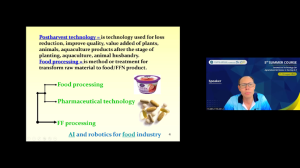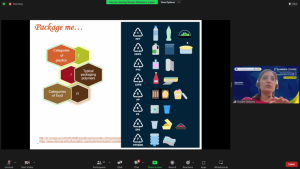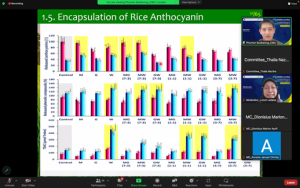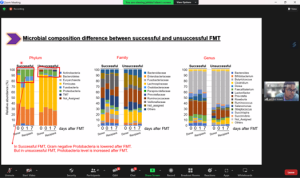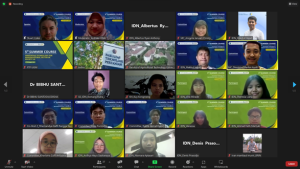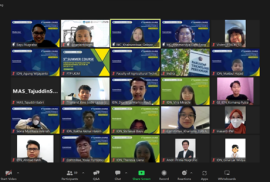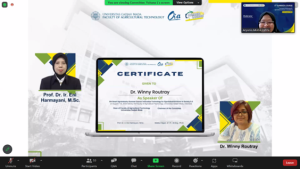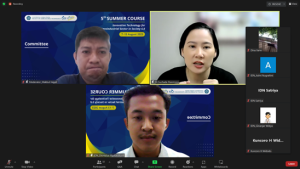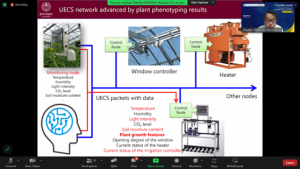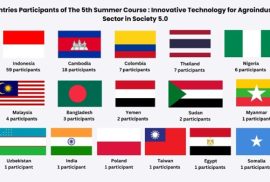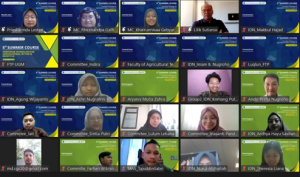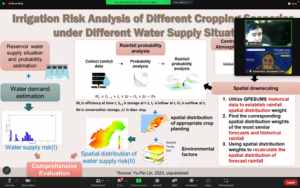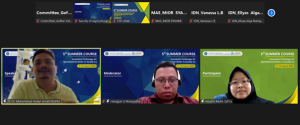The 5th day of the 5th Smart Agroindustry Summer Course was held successfully on August 11th, 2023. On this day, one national speaker and three international speakers participated to give an online lecture. The first session was presented by Riza Arief Putranto, PhD from Indonesian Research Center for Biotechnology and Bioindustry and the discussion was led by Inasanti Pandan Wangi, S.T as the moderator. The next session was presented by a Indonesian researcher who work at Research Institute for Humanity and Nature (RIHN) Japan, Andi Patiware Metaragakusuma, Ph.D and moderated by Megita Ryanjani Tanuputri, S.T.P., M.Sc., Ph.D. The afternoon session then continued with Prof. Tsai-Chi Kuo from National Taiwan University of Science and Technology as the speaker and the discussion was moderated by Thalia Naziha, S.T.P., M.Sc., M.B.A. Last but not least, the interesting closure session was a lecture by Assoc. Prof. Pornthipa Ongkunaruk, Ph.D. from Kasetsart University Thailand and the discussion led by Rendayu Jonda Neisyafitri, S.T.P., M.Sc.
Today’s session started with a topic that is highly related with one of the highest Indonesian cultural plants commodities, palm tree. Riza Arief Putranto, PhD brought “Agro-Industrial Technology in Oil Palm Disease Control: The Ganoderma Experience” for the live lecture. He explained well from the basic concept about Ganoderma disease until the advanced technology that could apply to control this oil palm disease. Moreover, not only talked about the integrated pest control for Ganoderma disease and the insertion of detection technology, but he also tried to elaborate it to the future gene of planting materials. Furthermore, Mr. Riza was not only lecturing, but he left with great messages for us that remind us about how important integrated pest control is for Ganoderma, yet, it was still facing the strictly implemented challenge due to the several protocols that have to follow. Besides that, he also encouraged us to find the curative treatment for BSR/USR, even though it is tricky.
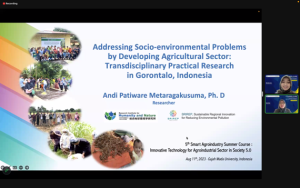 After relaxing for a while, the participants served with the next incredible session that talked about “Addressing Socio-environmental Problems by Developing Agricultural Sector: Transdisciplinary Practical Research in Gorontalo, Indonesia”. Andi Patiware Metaragakusuma, Ph.D. detailed the topics with the explanation from the introduction to RIHN and SRIREP Project. She elaborated the topic with socio-environmental problems in ASGM (Artisanal and Small-scale Gold Mining) areas. The session ended by sharing about the developing agricultural sector through transdisciplinary practical research in sorghum because the participants in Gorontalo want sorghum production to support their household economy. By this moment, she also brought up one of Indonesia’s commodities that can be alternative food diversification of rice or carbohydrate, sorghum, hence, it can be excellent food for future sustainability. Otherwise, TDCOPs (Transdisciplinary Community of Practices) sorghum challenges agricultural engineering and agro-industry for sorghum sustainability in the future.
After relaxing for a while, the participants served with the next incredible session that talked about “Addressing Socio-environmental Problems by Developing Agricultural Sector: Transdisciplinary Practical Research in Gorontalo, Indonesia”. Andi Patiware Metaragakusuma, Ph.D. detailed the topics with the explanation from the introduction to RIHN and SRIREP Project. She elaborated the topic with socio-environmental problems in ASGM (Artisanal and Small-scale Gold Mining) areas. The session ended by sharing about the developing agricultural sector through transdisciplinary practical research in sorghum because the participants in Gorontalo want sorghum production to support their household economy. By this moment, she also brought up one of Indonesia’s commodities that can be alternative food diversification of rice or carbohydrate, sorghum, hence, it can be excellent food for future sustainability. Otherwise, TDCOPs (Transdisciplinary Community of Practices) sorghum challenges agricultural engineering and agro-industry for sorghum sustainability in the future.
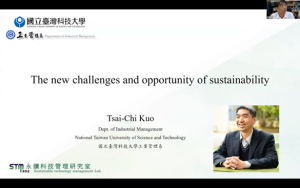
The first of two last sessions after lunch break was a lecture session with Prof. Tsai-Chi Kuo talked about “The New Challenges and Opportunity of Sustainability”. He brought the topics up by considering the environmental threats problem. He also mentioned Sustainable Development Goals (SDGs). The session ended with study cases prepared by the professor to build up the way of thinking and making strategy for implementation of smart supply chains.
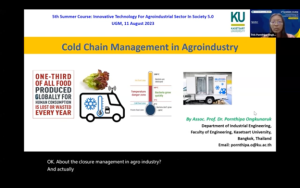
The last session for the 5th day of the 5th Summer Course was “Cold Chain Management in Agroindustry” by Assoc. Prof. Pornthipa Ongkunaruk, Ph.D. The background to this topic was due to food loss, which is also the world’s main problem. She started the explanation with shared data about food loss quantification in Thailand and tried to analyze the possible causes of food loss in a food supply chain. The lecture also connected the issue with food safety and found that the concerns of this issue is temperature, and finally brought back to the topic well by knowing that cold chain management is a great alternative to the food loss problem in agroindustry. In addition, she also elaborated the topics with the recent research and recommendations of best practices in cold chain management.

